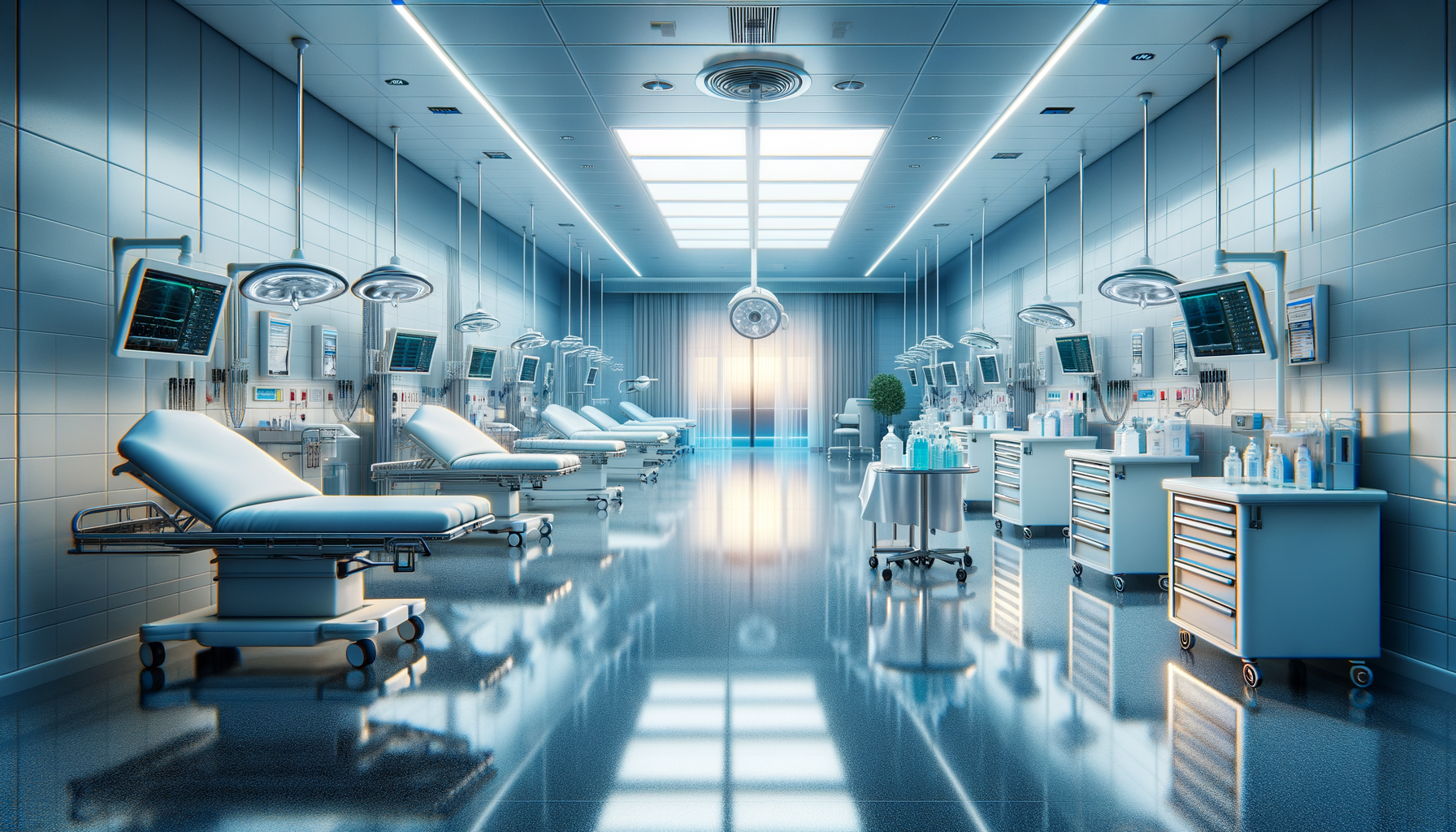The Indispensable Role of Cleaners in Healthcare
In the medical sector, professional cleaning roles are fundamental to maintaining a safe and hygienic environment. Healthcare facilities, including hospitals and clinics, are places where cleanliness is not just a preference but a necessity. The role of cleaning staff extends beyond mere aesthetics; it is crucial in preventing infections and ensuring the safety of patients, staff, and visitors.
Professional cleaners in healthcare settings are responsible for the meticulous cleaning and disinfection of surfaces, equipment, and spaces. This includes patient rooms, operating theaters, waiting areas, and restrooms. Their work helps to minimize the risk of healthcare-associated infections (HAIs), which are a significant concern in medical environments. According to the Centers for Disease Control and Prevention (CDC), one in 31 hospital patients has at least one HAI at any given time, highlighting the critical need for effective cleaning protocols.
The value of professional cleaning roles is further emphasized by the rigorous standards set by health organizations. Cleaners are trained to adhere to these standards, ensuring compliance with health regulations and guidelines. Their expertise in using specialized cleaning agents and equipment is essential for maintaining a sterile environment. This not only protects patients but also supports healthcare professionals in delivering high-quality care.
Impact on Patient Health and Safety
Cleanliness in healthcare facilities directly impacts patient health and safety. A sterile environment reduces the risk of infections and complications, contributing to improved patient outcomes. Infections acquired in hospitals can lead to prolonged hospital stays, increased medical costs, and in severe cases, life-threatening conditions.
Professional cleaners play a pivotal role in infection control. They are trained to identify high-touch areas that require frequent disinfection, such as doorknobs, bed rails, and light switches. By targeting these areas, cleaners help to break the chain of infection, preventing the spread of pathogens.
Moreover, the psychological benefits of a clean environment should not be underestimated. Patients often feel more comfortable and secure in a well-maintained facility, which can aid in their recovery process. Clean surroundings also contribute to the overall perception of the healthcare facility, influencing patient satisfaction and trust in the services provided.
Career Opportunities and Growth in Healthcare Cleaning
The demand for professional cleaners in the medical sector is on the rise, driven by the growing emphasis on infection control and patient safety. This has opened up numerous career opportunities for individuals interested in healthcare cleaning roles. These positions offer job stability and potential for growth, as healthcare facilities continue to prioritize cleanliness and hygiene.
Healthcare cleaning roles can serve as a stepping stone to other positions within the medical sector. Many cleaners gain valuable experience and skills that enable them to advance to supervisory or specialized roles, such as infection control specialists or environmental services managers. The healthcare industry values dedication and expertise, providing ample opportunities for career advancement.
Additionally, the role of a healthcare cleaner is rewarding in its own right. Individuals in this field take pride in their contribution to patient care and safety. Their work is essential to the functioning of healthcare facilities, and they are recognized as vital members of the healthcare team.
Technological Advancements in Cleaning Practices
The field of healthcare cleaning is continuously evolving, with technological advancements playing a significant role in enhancing cleaning practices. Innovations such as ultraviolet (UV) disinfection systems, electrostatic sprayers, and automated cleaning robots are transforming the way healthcare facilities approach hygiene and sanitation.
UV disinfection systems use ultraviolet light to kill bacteria and viruses on surfaces, providing an additional layer of protection against pathogens. Electrostatic sprayers disperse disinfectants in a fine mist that adheres to surfaces, ensuring comprehensive coverage and reducing the time required for manual cleaning.
Automated cleaning robots are becoming increasingly common in larger healthcare facilities. These robots are programmed to navigate hospital corridors and rooms, performing routine cleaning tasks with precision and efficiency. By integrating technology into cleaning practices, healthcare facilities can achieve higher standards of cleanliness and infection control.
These technological advancements not only improve the effectiveness of cleaning but also enhance the working conditions for cleaning staff. By automating repetitive tasks, cleaners can focus on areas that require human attention and expertise, making their work more efficient and impactful.
The Future of Professional Cleaning in Healthcare
The future of professional cleaning roles in the healthcare sector looks promising, with an increasing recognition of their importance in maintaining a safe and hygienic environment. As healthcare facilities continue to expand and evolve, the need for skilled cleaning professionals will remain a priority.
Environmental sustainability is becoming a key focus in healthcare cleaning practices. Many facilities are adopting green cleaning products and practices to reduce their environmental impact. This shift towards sustainability not only benefits the planet but also supports the health and well-being of patients and staff by minimizing exposure to harsh chemicals.
The integration of technology and sustainability in cleaning practices will shape the future of this field. Professional cleaners will continue to play a critical role in healthcare, adapting to new challenges and innovations. Their work will remain essential in supporting the health and safety of communities, making healthcare cleaning a fulfilling and impactful career choice.
In conclusion, professional cleaning roles in the medical sector are invaluable. They contribute significantly to patient safety, infection control, and the overall functioning of healthcare facilities. As the industry evolves, so too will the opportunities and advancements in this vital field.




Leave a Reply